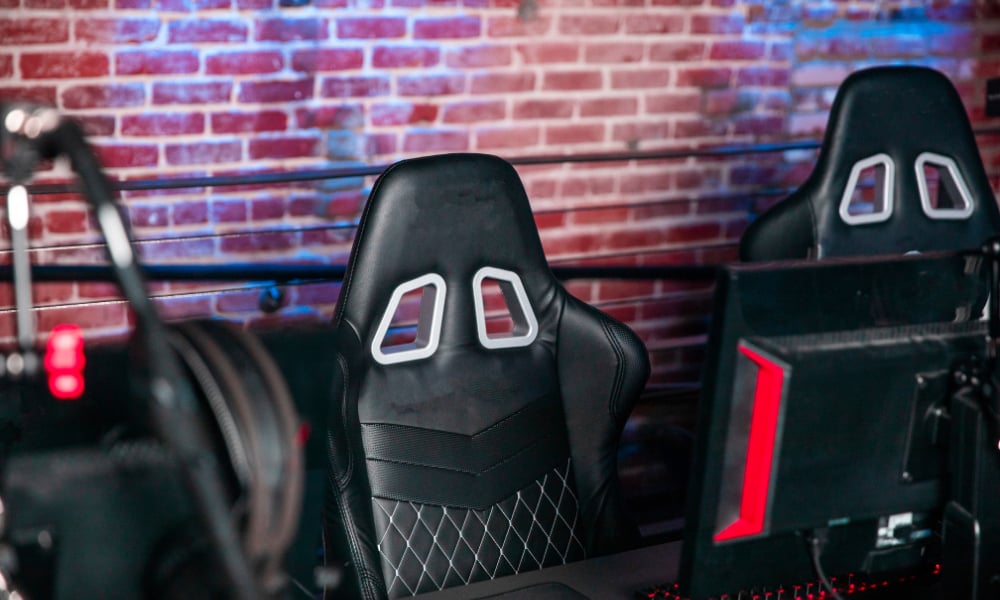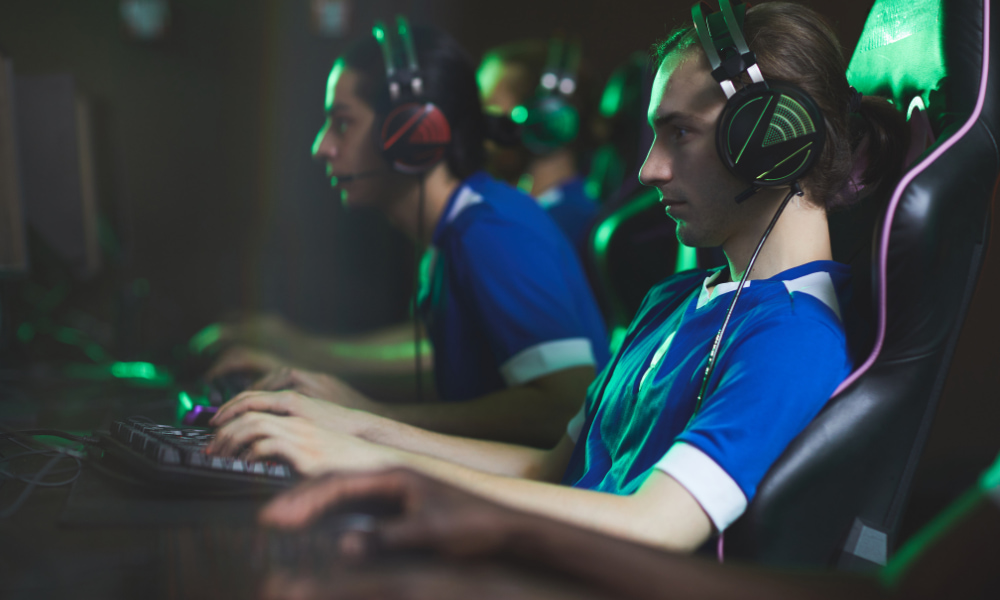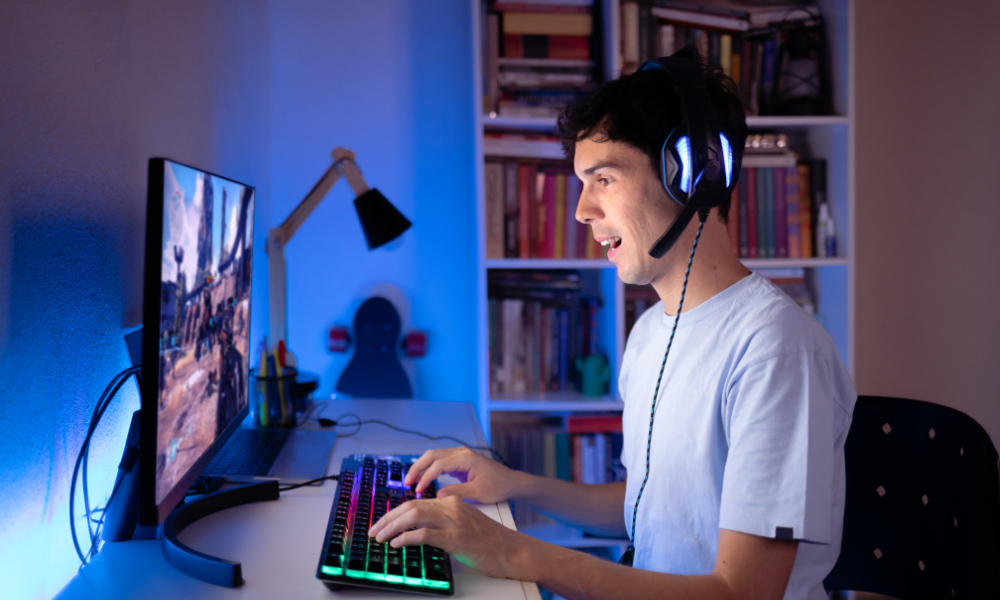Games
Best Mobile Strategy Games to Challenge Your Mind
Ready to up your game? Discover the best mobile strategy games that challenge your mind, boost your tactics, and keep you sharp—plus actionable tips for every session.
Advertisement

Ever gotten hooked on quick puzzle apps, only to crave something deeper that sticks with you after you close the screen? You’re far from alone—today’s mobile strategy games fill this very urge.
The genre matters because strategy titles demand patience, sharp observation, and the kind of clever tactics you once used in board games or long car trips. Now, they fit in your pocket, ready to challenge you anytime.
If you’re curious why so many people swear by mobile strategy games or want to see which titles can truly stretch your mind, you’ll find concrete tips and must-try examples below.
Planning Your Victory: Building Strong Foundations in Mobile Strategy Games
Launching a new campaign in mobile strategy games usually means balancing resources and understanding your map before making a single move. Success comes from structured early planning, not impulsive taps.
When you first open a title like Clash Royale or Plague Inc., set yourself the rule: never rush your first five moves. Spend at least one minute studying your resources and goals.
Breaking Down Your Starting Position
Look at your opening situation: what’s your income per turn, defensive options, and potential threats nearby? A player might say, “If my wood income is low and my closest enemy is two moves away, I invest early in defense.”
Compare options side by side in a notepad or app. Write notes like “upgrade barracks by turn two only if I dominate my corner.” This sets firm milestones and prevents random spending.
Resist exploring blindly. Each tap should serve a testable hypothesis. Example: “Do I get more income if I hold back this turn versus risking a rush?” Small experiments help refine your future decision tree.
Establishing Short- and Long-Term Goals
Select short gains you can count: “Secure extra gold within four turns, or aim for five units by round seven.” Specify outcomes to review after each session, so you don’t drift through the game.
To avoid tunnel vision, alternate your checklist: one goal focuses on resource growth, one on defense, a third experimental move on new tech. Cycle through these until a pattern emerges for optimal play.
If you get frustrated or lost, imagine explaining your plan aloud—a trick grandmasters use in chess. If you can’t say, “My next step is X to prepare for Y,” pause and reevaluate.
| Game Title | Starting Strategy Focus | Session Length | Takeaway |
|---|---|---|---|
| Clash Royale | Resource counting, early defense | 5-10 min | Slow initial play increases win rate |
| Plague Inc. | Long-term mutation planning | 10-30 min | Establish one mutation goal per play |
| XCOM: Enemy Within | Cover setup, tech upgrades | 20-40 min | Blend short tech boosts with map control |
| Tropico | Economy balancing | 15-30 min | Spend 2 min assessing balance before start |
| Northgard | Territory evaluation | 10-20 min | Prioritize territory with free resources |
Managing Multiple Priorities to Gain Strategic Advantages
Keeping track of many shifting goals, mobile strategy games train your focus, and clear habits can turn chaos into harmony. Create a simple priority map each session.
If you’re tabbing between resources, units, and threats, pause. Assign a mental ranking: what absolutely must happen this turn, what can wait, and what just seems tempting but risky?
Checklist for Sorting Priorities Mid-Game
Keep a running punch list. For each task, ask: does this earn me points, block an incoming threat, or open new abilities? If none, deprioritize immediately.
Compare your ideal sequence with the actual board state. For example, “Attack this small unit now, delay building until next round, scout for gold in parallel.”
- Assess immediate threats before spending resources, preventing waste and costly surprises each turn.
- Layer upgrades after securing defense, as premature investment can leave your assets exposed.
- Delay major attacks until you’ve identified a secondary route for retreat or reinforcement to reduce your risk.
- Alternate between offense and defense to avoid becoming predictable and to keep opponents off-balance.
- Set a three-turn review timer on your priorities, forcing yourself to adapt quickly based on changing circumstances.
After execution, review your checklist out loud: “Did I execute in this order? Why did I stray?” Small post-move reviews lead to sharper instincts over time.
Switching Priorities When the Board Shifts
Mid-match, stay alert for sudden shifts—like discovering a hidden opponent or unexpected reinforcements. If the field changes, freeze and reassess.
- Abandon a resource push if a high-value threat appears, choosing containment or safe retreat over risky gains for long-term survival.
- Upgrade mobile defenses aggressively if opponents switch tactics; don’t hesitate if the field becomes unpredictable.
- Focus on neutral objectives instead of direct confrontation; build your advantage away from heavily contested areas.
- Pace yourself—urge to respond instantly can lead to mistakes. Take a deep breath and check your options before clicking.
- Keep communication short with co-op partners or teammates. Use keywords like “hold,” “push,” or “scout” to coordinate without losing clarity.
Each course correction, when handled briskly, prevents spiraling into unplanned chaos, letting you recover your composure and build new advantages with purpose each turn.
Learning Tactics from Great Players and Improving Your Game
Watching the pros in mobile strategy games can lift your tactical game overnight. Study how they react, and adapt simple tricks to your own sessions for quick improvement.
Pacing Your Plays for Consistency
Notice how skilled players rarely tap in bursts. They use a steady rhythm: scan, choose, commit, pause. Copy this by counting silently (“one, two, three, tap!”) before each move.
This breaks up knee-jerk actions and gives time for careful evaluation. You’ll spot more options and catch clever blocks you otherwise miss.
If you catch yourself speeding up—shallow breaths, hunched posture—deliberately set your phone down between moves. A short break restores control and lets you observe patterns.
Copying Key Turn Sequences for Practice
Record one full match and replay your moves, voicing each action: “I attack here because I saw weakness.” Reviewing records builds awareness of missed opportunities in mobile strategy games.
Try a “Goldilocks Turn” rule: not too fast, not too slow—test everything twice. This maxim locks in better memory and steadies your hand under pressure.
In longer matches, mimic a known pro move by move. This lets you internalize the logic behind each tap and turns study into immediate improvement.
Balancing Your Playtime: Avoiding Burnout While Improving Skill
Long sessions in mobile strategy games challenge your mental stamina, so it’s crucial to prevent fatigue. Smart habits split gameplay into focused chunks, leaving you eager, not exhausted.
Scheduling and Spacing Out Matches
Set a simple timer: one match, then a five-minute break—stand, stretch, refresh your mind. This keeps your thinking sharp and stops patterns from getting stale or automatic.
Batch gameplay into two or three sessions instead of marathon runs. Layer these play bursts with a favorite snack or coffee break so each return to the screen feels like a reward.
Track your mood and performance: if you notice riskier plays or frustration kicking in, log the time and step away until composure returns. This record-keeping polishes self-awareness.
Preventing Repetitive Strain and Keeping Hands Ready
Do hand stretches between matches, circling wrists and flexing fingers. This keeps muscles loose, preventing physical discomfort that can sneak into decision making as fatigue.
Adjust screen brightness, and experiment with play styles: if you start a match sitting, stand for the next. Swapping postures brings new energy each session and freshens your perspective.
Never sacrifice sleep for “just one more match.” Your memory and sharpness recover fastest with rest—returning to the game rested means more wins and fewer regrets later.
Seeing Patterns: Spotting Winning Moves Faster in Mobile Strategy Games
Smart players in mobile strategy games build memories of recurring patterns and use them to spot optimal plays on the fly. The trick isn’t luck—it’s a mental catalog built through repetition and mindful review.
Sharpening this catalog means focusing on openings, traps, and resource clusters you notice frequently. When you spot something familiar, recall what worked before and try it again in the right context.
Cataloging Standard Moves in Your Head
Each session, write a fast list after playing: “Saw X at round three; countered with Y.” Repeat for every familiar set-up. Review these lists weekly for improved recognition speed.
If an opponent uses the same trick twice, add it to your notes as “Opponent repeat: be ready with Z.” You’ll build fast-response habits and rarely get surprised by the same tactic again.
Analogous to learning chess, pattern review lets you pre-load responses—so, next time, intuitive moves come without panic or hesitation, just like recalling a safe driving maneuver in rain.
Training with Puzzle Modes and Tutorials
Most mobile strategy games now include single-turn puzzles or daily challenge modes. Completing these improves your recognition of classic strategies without the pressure of live opponents.
Make it a habit to play one or two puzzles before normal matches. Treat each one as a skills drill, focusing on outcomes and alternate move sequences to widen your tactical range.
Keep your top five solutions handy—either in a note-taking app or a small notepad near your play space. Refer to these when you face similar situations, and update them as your skills develop.
Adapting to Updates: Winning Despite Meta Shifts in Mobile Strategy Games
Every big patch, mobile strategy games can shift dramatically. Staying current ensures your strategies stay effective and lets you discover new routes to victory others may miss.
Set one evening each week to review patch notes or community summary posts. Jot down any changes that impact unit stats, abilities, or scoring systems. This habit reduces nasty mid-match surprises.
Testing New Updates in Practice Matches
Start with low-stakes practice runs. Use the most-changed unit or tactic early to see the effect—don’t wait until high-pressure matches to try something unfamiliar.
Log all unexpected results and unusual outcomes. Each finding, even a frustrating one, is a shortcut for future sessions: “Avoid X in the new patch; Y is now stronger.”
Share your discoveries with a training partner or guild for feedback. Comparing notes helps catch blind spots and generates new tactics to explore in your regular matchups.
Keeping a Flexible Mindset Through Change
Practice This Script: “If my usual approach fails, I’ll pivot after two turns.” Flexibility outpaces stubbornness and gives you repeated chances to learn from changing circumstances.
Swap out stale builds or strategies every three sessions, even if you’re winning. Forces your brain to stay nimble and reduces risk of getting blindsided by new meta strengths.
Remind yourself: each update means a fresh competitive slate. See shifts as a creative challenge, not an annoyance. Adopt the mindset, “I adapt first; let the opposition copy me.”
Experience the Full Potential: Why Strategy Games Remain Essential on Mobile
Mobile strategy games continue to evolve, offering smarter AI, tighter puzzles, and accessible learning curves for anyone eager to sharpen their thinking on the go. Every session strengthens real-life skills like planning, risk analysis, and resilience.
Choosing the right titles and using the practices here guarantees steady improvement. You’ll grow sharper, more resourceful, and ready for every new challenge—not just on your device, but in everyday scenarios requiring problem solving.
Try one focused improvement from this guide in your next match. Whether it’s pausing to review, writing short goals, or cataloging moves, you’ll find play becomes more rewarding and each session a step toward mastery.

Mobile Adventure Games
Explore immersive worlds on your phone with mobile adventure games! Follow tips for picking, playing, and mastering your next adventure.
Trending Topics

How Mobile Games Are Taking Over the Global Market
The mobile gaming market is growing fast, adapting to modern lifestyles with quick, engaging experiences for players everywhere.
Keep Reading
The Best Equipment for eSports Players and Competitors: Gear That Delivers Results
Pro eSports gear boosts reaction, comfort, and focus—fine-tuned equipment transforms every match into a consistent winning edge.
Keep Reading
The Importance of Mental Training in eSports Performance
Mental training eSports boosts focus, stress management, and team communication, helping mobile gamers improve consistency and performance.
Keep ReadingYou may also like

How to Choose the Right eSports Game to Compete In
Choosing the right eSports game aligns your skills, hardware, and playstyle for success, growth, and long-term enjoyment.
Keep Reading
Improve Your Communication in Multiplayer Games with These Tips
Master multiplayer games communication with tips on callouts, active listening, and team coordination for smoother gameplay and more wins.
Keep Reading
Virtual Reality Games for Sports Enthusiasts
Discover the top virtual reality sports games for active, immersive experiences that challenge your reflexes and skills.
Keep Reading